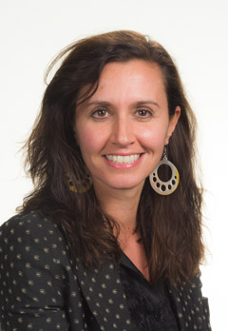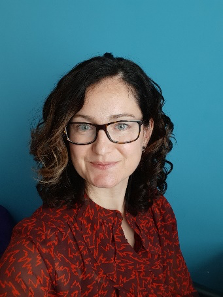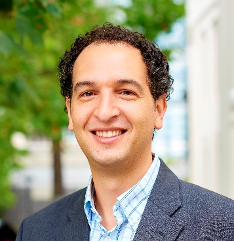Book Launch: Business, Human Rights and Transitional Justice
Speaker(s):
Series:
Notes & Changes
Register here. Please note that this event will be recorded, with the exception of any live audience questions.
The Oxford Business and Human Rights Network and the Oxford Transitional Justice Research invite you to the launch of the book ‘Business, Human Rights and Transitional Justice’ (Routledge, 2020) by Dr Irene Pietropaoli. The discussants are Maha Abdallah; Dr Oyeniyi Abe; Dr Jelena Aparac; Dr Nadia Bernaz; Dr Jonathan Kolieb; Dr Tara Van Ho; Dr Marco A. Velásquez-Ruiz. Our speakers will explore the intersection between the areas of transitional justice and corporate accountability and the efficiency of transitional justice processes in Africa, Latin America and Middle East.
About the Book
The book considers the efficacy of transitional justice mechanisms in response to corporate human rights abuses. Corporations and other business enterprises often operate in countries affected by conflict or repressive regimes. As such, they may become involved in human rights violations and crimes under international law ‒ either as the main perpetrators or as accomplices by aiding and abetting government actors. Transitional justice mechanisms, such as trials, truth commissions, and reparations, have usually focused on abuses by state authorities or by non-state actors directly connected to the state, such as paramilitary groups. Innovative transitional justice mechanisms have, however, now started to address corporate accountability for human rights abuses and crimes under international law and have attempted to provide redress for victims. This book analyses this development, assessing how transitional justice can provide remedies for corporate human rights abuses and crimes under international law. Canvassing a broad range of literature relating to international criminal law mechanisms, regional human rights systems, domestic courts, truth and reconciliation commissions, and land restitution programmes, the book evaluates the limitations and potential of each mechanism. Acknowledging the limited extent to which transitional justice has been able to effectively tackle the role of corporations in human rights violations and international crimes, the book nevertheless points the way towards greater engagement with corporate accountability as part of transitional justice. A valuable contribution to the literature on transitional justice and on business and human rights, this book will appeal to scholars, researchers, and PhD students in these areas, as well as lawyers and other practitioners working on corporate accountability and transitional justice.
An audio recording of this event is available to listen to on Soundcloud
Author of the Book

Dr Irene Pietropaoli is a Research Fellow in Business and Human Rights at the British Institute of International and Comparative Law (BIICL). She conducts research on corporate human rights due diligence, other aspects of implementation of the UN Guiding Principles on business and human rights, and legislation on modern slavery in supply chain. Irene is also leading BIICL's work on Artificial Intelligence and its links with business and human rights.
Prior to joining BIICL in October 2018, Irene worked with international organisations and NGOs in different countries of Europe, Latin America, South and Southeast Asia in the area of business and human rights. For three years, she was based in Yangon, Myanmar, where she worked as a business and human rights consultant for both Amnesty International and FIDH. Previously, she was a Senior Researcher at Business & Human Rights Resource Centre. She also worked for the legal programme of ECPAT International in Thailand and for the Inter-American Court of Human Rights in Costa Rica. At the beginning of her career Irene was a legal practitioner in Madrid, Spain.
Irene has published regularly in international human rights law journals, books, and newspapers. Her monograph 'Business, Human Rights and Transitional Justice' was published in May 2020 by Routledge.
Irene holds a PhD from the school of Law of Middlesex University, London. Her thesis is on remedies for corporate human rights abuses in transitional justice contexts. She has a first-class honours LL.M in International Human Rights Law from the Irish Centre for Human Rights and first degrees in Law from the University La Sapienza of Rome and from the University of Barcelona.
Discussants

Maha Abdallah is an International Advocacy Officer at the Cairo Institute for Human Rights Studies, a regional organisation seeking to promote human rights in the Arab world. Formerly, Maha was a Senior Legal Researcher and Advocacy Officer at Al-Haq, a Palestinian human rights non-governmental organisation. Maha's research and advocacy focuses, among others, on questions relating to corporate accountability, business and human rights, and conflict-affected areas. In 2018, Maha was elected to the International Network for Economic, Social and Cultural Rights (ESCR-Net) Board. In 2017, Maha received her LL.M. in International Human Rights Law from the Irish Centre for Human Rights, and in 2013, her B.A in Political Science with a specialization in international law from The American University in Cairo.

Dr Oyeniyi Abe is a Research Fellow at the Centre for Comparative Law in Africa, Faculty of Law, University of Cape Town, South Africa. He is a law teacher, author, and policy consultant, with expertise in business and human rights, sustainable development, natural resources law, and environmental law. He has written about the scruffiness and injustices of adaptation and resilience planning as applicable to Nigeria’s Niger-Delta. He has also published extensively on oil and gas law, and the intersections of business, human rights and environment, as well as provided expert advice and opinion on extractive industries law in Africa. He is currently investigating how constitutional and governance organization can create transformative change for the people. A prolific researcher and speaker, he sits on the Executive Council of the International Law Association, Nigerian Branch and is a member of the International Bar Association, Nigerian Bar Association and an Editorial Board Member of the Journal of Comparative Law in Africa. Oyeniyi has studied in Nigeria, Hungary, South Africa, and the United States, where he spent time as a Fulbright Scholar at Loyola University, Chicago.

Dr Jelena Aparac is a member of the UN Working Group on mercenaries. She holds a PhD in international public law. Her dissertation focused on “International criminal liability of corporations for international crimes committed in non-international armed conflicts”. She also holds an LLM from the Geneva Academy of International Humanitarian Law and Human Rights. Dr. Aparac is a lecturer in international humanitarian law, human rights, international criminal law, and international refugee law. She has given lectures and conferences at academic institutions around the world and has contributed as an independent expert to various intergovernmental discussions on issues related to international peace and security. She has also participated in drafting several complaints against corporations, and worked as a consultant on refugee protection, humanitarian action and diplomacy, protection of civilians and medical missions in armed conflicts. As a field worker and legal advisor for Médecins sans Frontières, Dr. Aparac worked in conflict areas such as South Sudan, Chad/Darfur, the Democratic Republic of the Congo and the Central African Republic. She is currently coordinating corporate crimes investigation in the conflict affected country in Africa and is part of a team investigating corporate climate change related crimes in a conflict affected country in Asia.

Dr Nadia Bernaz (@NadiaBernaz) is Associate Professor of Law at Wageningen University (the Netherlands), and Visiting Professor at the Catholic University of Lille (France). She holds a PhD in international law from Aix-Marseille University (France). She is the author of Business and Human Rights. History, Law and Policy (Routledge, 2017) and has published numerous academic journal articles on human rights issues. She has been teaching business and human rights since 2010. She founded and runs Rights as Usual, a blog dedicated to business and human rights.

Dr Jonathan Kolieb is Senior Lecturer in Law at the Graduate School of Business and Law, RMIT University in Australia where he also serves as Peace and Conflict Cluster Lead at RMIT’s Centre for Business and Human Rights. He holds degrees from the University of Melbourne (PhD; B.A./LL.B.), the University of California-Berkeley (LL.M; M.A.) and Monash University (B.A.-Hons). Jonathan has been a visiting fellow at Australian National University and George Washington University and has acted as legal consultant to the United Nations’ Office of the Special Representative of the Secretary-General for Children and Armed Conflict. He has held positions at the Embassy of Australia in Washington DC, and with several NGOs focusing on human rights and international affairs. Jonathan's research focuses on various global governance issues including current projects on the legal protections of children in armed conflict and the human rights obligations of transnational corporations operating in conflict-affected areas. Jonathan is also collaborating with Australian Red Cross on a project aimed at embedding respect for international humanitarian law into the policies and practices of Australian companies operating abroad.

Dr Tara Van Ho is a Lecturer at the University of Essex School of Law and Human Rights Centre, where she co-directs the Essex Business and Human Rights Project. She is currently co-President of the Global Business and Human Rights Scholars Association and sits on the Editorial Board of the Business and Human Rights Journal. Her areas of research focus on the intersection of business and human rights, investment law, armed conflict, and transitional justice.

Dr Marco A. Velásquez-Ruiz is a Colombian Lawyer (Javeriana University, Colombia, 2005), and holds a LLM in International Law (IHEID, Switzerland, 2010) and a PhD in Law (Osgoode Hall Law School ‐ York University, Canada, 2016). He served as Assistant Magistrate at the Colombian Peace Tribunal (2018-2020). Marco has extensive experience as consultant to various national and international organizations (USAID, IOM, UNHCR, Humanity and Inclusion). In addition, he has lectured and researched on a variety of themes within the realm of International Law, Transitional Justice and peacebuilding, Business and Human Rights, and International Investment Law and Arbitration.


 Add to calendar
Add to calendar


